From Boat to Table with the Serafina Boys
“Embark on an adventure,” they say in Italy. But it’s more than a saying for Vittorio Assaf and Fabio Granato, who are neither sailors nor explorers.
This is about the well-known and now legendary owners of the successful restaurant chain Serafina. But only a few friends know that their American adventure began on a boat.
I meet them together sitting at a table in their new restaurant Serafina Upper West. In a few days their next restaurant will open in New York and on April 17 Serafina Meatpacking will be christened. Joining us at the table is Alessandra Rotondi, their sommelier for several years.
It was one of the most entertaining conversations I’ve ever had. Vittorio Assaf and Fabio Granato tell me much about their lives. Between one anecdote and the next, there is often confusion in the fun memories accompanied by their dishes speaking in with vivid colors, scents, and flavors.
“This is restaurant magic. It’s a neighborhood for families so we are also invaded by little ones. The parents bring them. In the afternoon there is a very special atmosphere and I’m happy with that. They are our future customers. Then at night there are always more people.” Vittorio greets me with a very sweet smile from the other side of the table. Fabio, at first, is more detached, scrutinizing me.
I ask them to tell me the story of the boat. Actually a catamaran. “It all started that day. We decided to go skydiving over the weekend. We went to Southampton, but after a day of class we were told it was too windy. We couldn’t launch then. Clearly,” jokingly observes Fabio, “Vittorio had no intention of doing it as soon as he saw the liability release he had to sign.”
Vittorio interjects: “A tremendous thing! Sixty-four thousand pages that read. If you lose an ear you can’t sue, if you become brain damaged you can’t sue, if you die you can’t sue….”
So, unable to skydive, they decided to rent a catamaran. “Vittorio, I don’t know anything about the sea,” I told him and he responded: “You don’t need to do anything. Don’t worry! We’ll get a sail boat and see where the wind takes us.”
Where the wind takes us…. But the wind was too strong even for a boat. And shortly after in the water they, too, realized it. It was too late.
“Our girlfriends left us,” Vittorio remembers, “so just the two of us set sail. After only ten minutes, the mast detached from the boat. It was about 50 knots of wind.”
They are alone in the middle of the bay. Lights come on in the distant houses. It’s eight o’clock at night. No one sees them. No one comes to help.
“The waves were very high. They couldn’t see us. We screamed in vain. At some point, to distract ourselves, we start talking about food. What we like. Pizza and pasta. Our girlfriends, now at home, not seeing us come back, who knows, maybe they thought we found someone else! A long time passes and we decide: if we come out alive, we will invent pasta and pizza that does not exist in New York!”
Only much later did the girls realize their prolonged absence. They call 911 and a helicopter sighted them at around two o’clock in the morning. They come home shivering but safe. And then they must realize what they promised. “We immediately started to look for the location, opening a year later on July 17 in ’95.”
They share so many anecdotes between one delicacy and the next. Unfortunately I cannot recount them all, but I came back home laughing to myself.
Vittorio: “So we saw what others could not see yet. Nobody believed in our project. Our friends, rich and poor, they said: What made you think of opening a restaurant? And on the second floor? You’re throwing money away!”
Fabio: “Our own families didn’t support us. I'll always remember a fat American who said to me one day: Who the fuck do you think is gonna come upstairs? But then he apologized to me, after we had just opened the restaurant and he saw the line to get in.”
I try to understand, to uncover a few secrets from these restaurateurs who have already opened many restaurants and not just in New York.
“It’s been a combination of elements right from the start,” says Vittorio. “The energy, the décor, but mostly I repeat what we invented – an industry that was not there before.”
There were stiff, luxury Italian restaurants, and there was nothing else. There was nothing in between. We decided to change the way New Yorkers eat. We found a niche with the slogan: ‘Welcome home.’ People had to feel good and the prices had to be fair. An example today? Penne with vodka for $10. It costs you less to eat here than to cook at home! You have to buy De Cecco penne, then parmigiano reggiano, then Sicilian sea salt, then vodka, then the real Sammarzano tomatoes from Naples….”
“We are open 7 days a week. With 1,500 employees we feed 5,000 to 6,000 people a day.”
A success story. They opened many other restaurants since the first. A few of the names: Serafina Fabulous Grill, Serafina Osteria, Serafina Broadway, Serafina at The Time Hotel, Serafina East Hampton, Serafina Philadelphia, Serafina White Plains, Serafina Upper West, and Serafina Sao Paulo in Brazil. And then others that don’t serve Italian cuisine: Geisha Brasserie and Cognac.
Here’s another anecdote. The restaurant Serafina 61 was originally called Sofia. It was the name of an ex-girlfriend who he hoped would come back. “Yes, he captured the romantic side of people. There was a line to get in, but there was always one empty table. People knew that he expected Sofia. Sofia never came back!”
And to change the name of the restaurant they held a very successful contest. “Yes, it was a great advertising campaign. And our new name came out: Serafina. This got us three pages in the New York Times. It was ’98!”
The courage and the thrill of exploration. Even restaurants inspired by Japan and France are a success. There, the Italian eye suggests other cuisines with subtlety. Even the restaurant Serafina Upper West has a small room is devoted to Asian cuisine. Here I tasted a curious but amazing sushi with truffle. I recommend it to everyone.
So tradition but also taste, sometimes gone a bit crazy with experimentation. “We're opening Serafina Meatpacking and we came up with a menu just for adults. You must be at least 21 years old to order. It’s based on tequila.”
Alessandra Rotondi adds to the chatter and tells us how she met them at the Fancy Food Show. “I knew them by reputation; I wrote about them while I was in Italy before even meeting them. I was excited, but we quickly hit it off and they asked me to work with them as a sommelier. We have to open Cognac,” they told me. “Come with us!”
Vittorio explains, in front of me, to a co-worker that there is too much sauce on the carpaccio. I ask him about his passion for cooking. “It comes from my grandmother. Every Wednesday we had company at home. They were intellectuals and artists. At four years old I knew how to make pizza, and at eight years old sea bass.”
It’s not the same for his friend who admits to not being much in the kitchen: “I like to taste! And I’m also very critical. I like to have fun in the kitchen but I also have a sense of taste, of flavors.”
“He’s the critic and I’m the cook! I’m crazy sometimes. I come up with menus that are neither in heaven nor on earth,” says Vittorio.
I try to steal a few more secrets. A comfortable environment. The right price. And what else?
“The quality of the ingredients that did exist when we opened. The simplicity that is not so easy to capture. The flavors all have to balance. Even desserts, which are often too sweet. One thing flows from the other. “Seeing is believing,” says Vittorio. “No compromise; quality always. The buffalo mozzarella comes from Caserta the same day it is produced and is on the table that evening. And so it is for other products. The flavor must remain in the throat, mouth. If it succeeds, the product becomes the most extraordinary sensation of your life. All this in a place that should be an extension of your home. The locations are all magical. They feature frescoes by Michela Martello so they are all special.”"
They will also open in Tokyo, then in Brazil and Russia. I ask them how they plan to keep the original spirit as they continue to expand. There is always the risk of losing control over quality and customer relations.
“The secret is in the training we do. It lasts three months with only five people in the kitchen. After they have prepared 300 pastas and 500 pizzas a day, then they can cook with their eyes closed.”
It still seems like I’m talking to those two foolish guys who rented a boat on the wrong afternoon. Yet their success is no joke. They have become famous thanks to the presence of so-called celebrities at their restaurants. Many articles and photographs recount these visits along with celebrity gossip. Lady Gaga and Tom Cruise are among the many superstars who have visited.
And yet it doesn’t seem like success has gone to their heads. “For us, every day is like the first day. With every restaurant we open we are as excited as if it were the first. We like it, even though we are a bit crazy! It's fun. We try to convey the excitement. Many have worked with us for over 10 years.”
Fabio Granato: “I don’t think I’ve changed. We’re the same. There was a moment when we didn’t have money to buy dishes. Near the opening the façade needed to be repaired and no one wanted to give a loan. We were very inexperienced, and in the lease it said that we were responsible for everything. Even events like this.”
Vittorio Assaf: “We’re the ones who, for the oven, brought back lava from Vesuvius in our suitcases and salt from Sicily to absorb moisture from pizza in the oven.”
“Sometimes really comical things happen around here,” says Fabio, who along with Vittorio continues to share stories….
“You have 110 people who work together but who don’t necessarily love each other. This is the toughest job in the world. The same exact dish can turn out quite differently. Anything goes.”
And there’s the old woman who slaps you because her diabetic husband receives the wrong order because the waiter delivered it to the wrong table. Then there’s the woman with her boa on fire because of a candle and it’s saved by mineral water. There’s the woman who complains with the cane that belongs to her blind husband.
At the end, I spontaneously ask them what they will be when they grow up. Vittorio wants to open a restaurant in his native Milan. It’s just the opposite for Fabio. “We can’t talk about that part of Italy. One thing is ‘certain,’” says Fabio still joking: “I want to produce a movie and Vittorio will play the lead.”
The film, I think, is the one I just saw.






























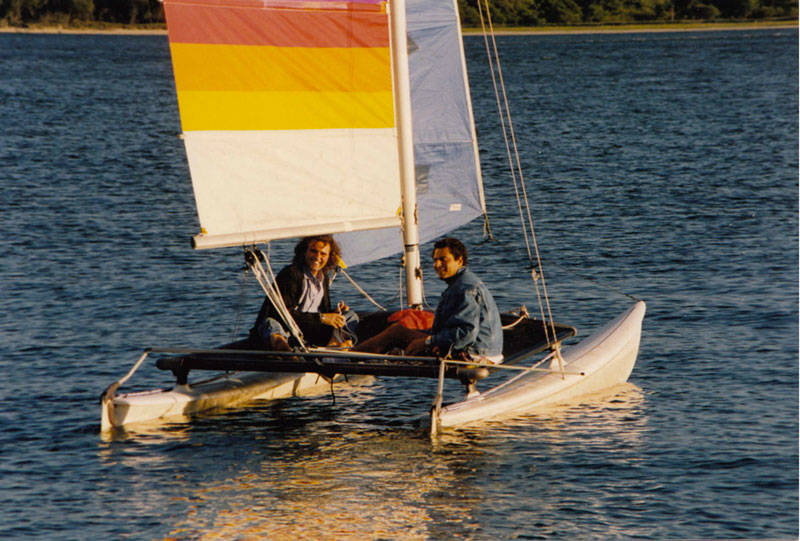
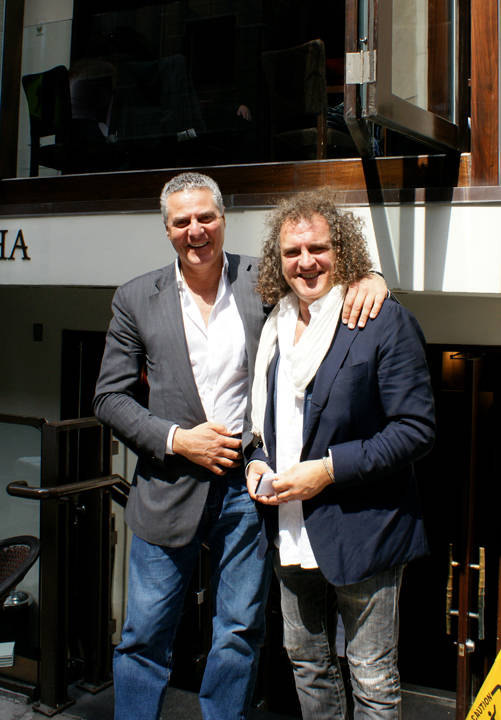
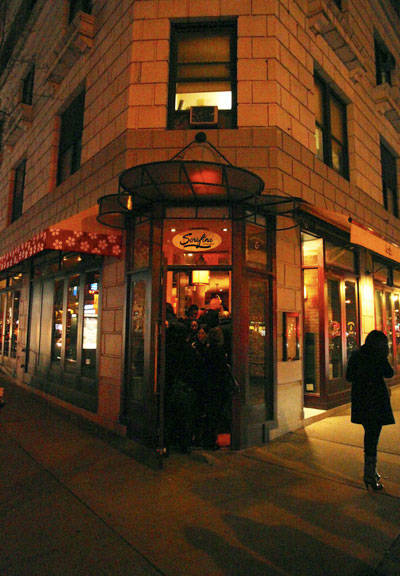
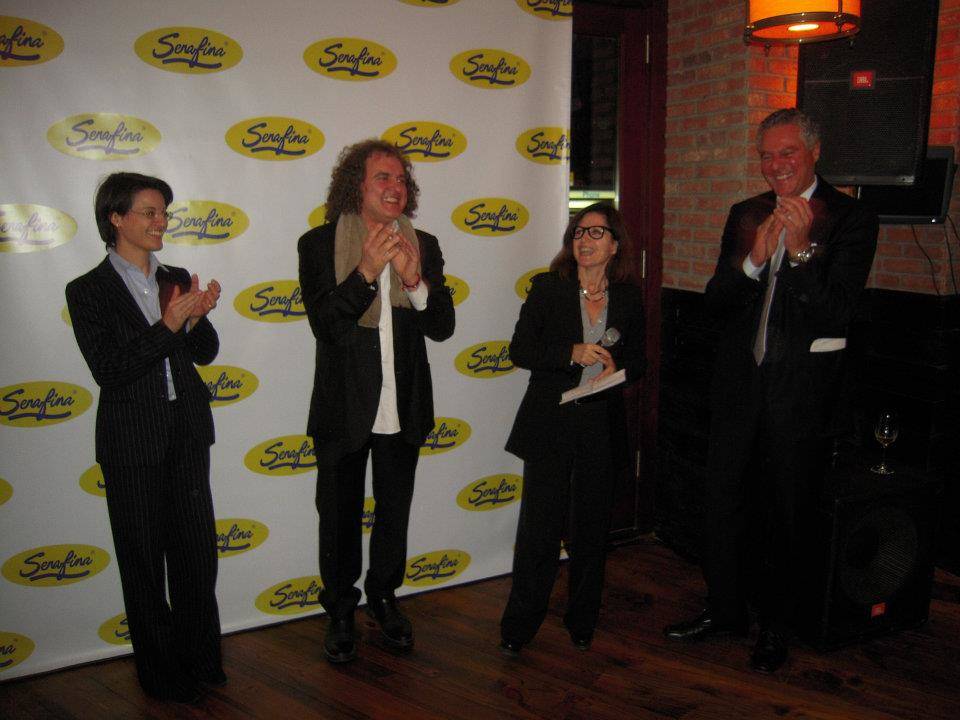

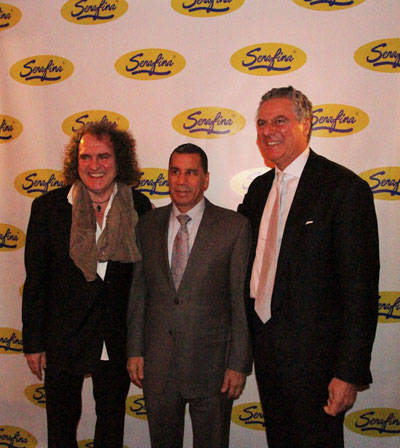
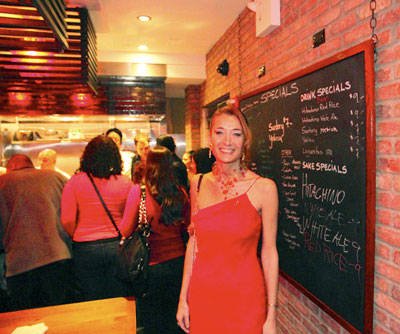
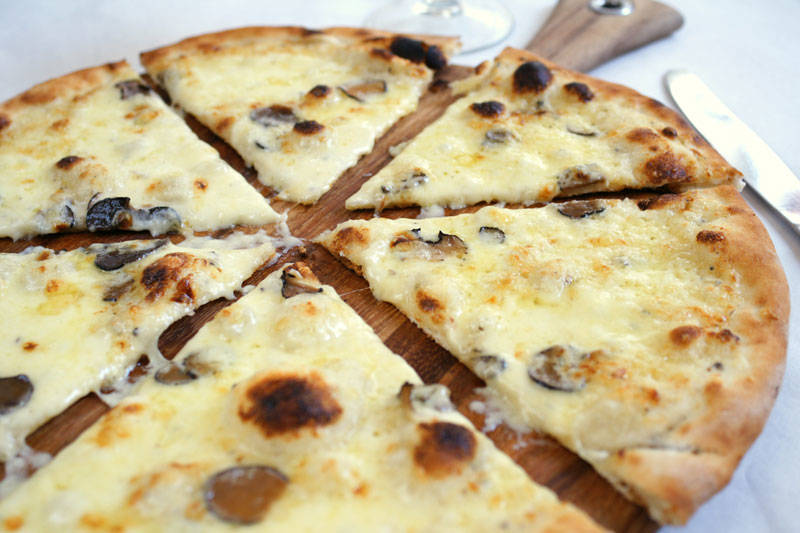
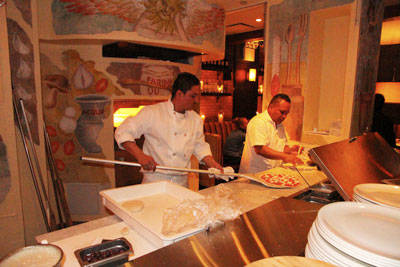
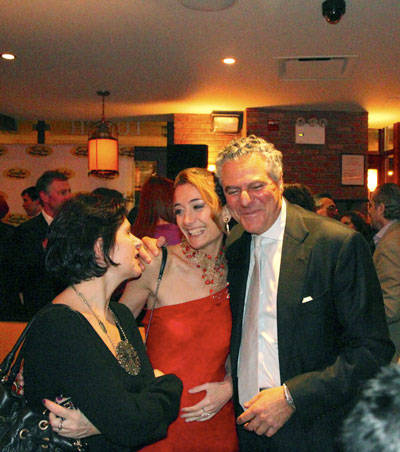
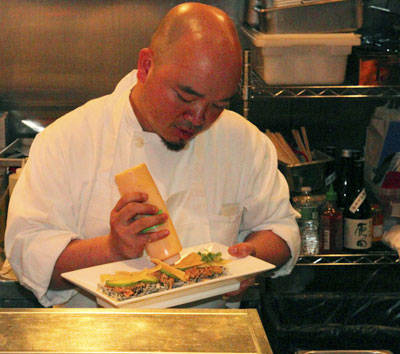



i-Italy
Facebook
Google+
This work may not be reproduced, in whole or in part, without prior written permission.
Questo lavoro non può essere riprodotto, in tutto o in parte, senza permesso scritto.